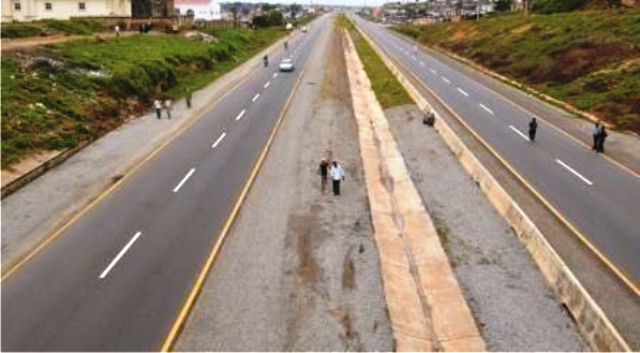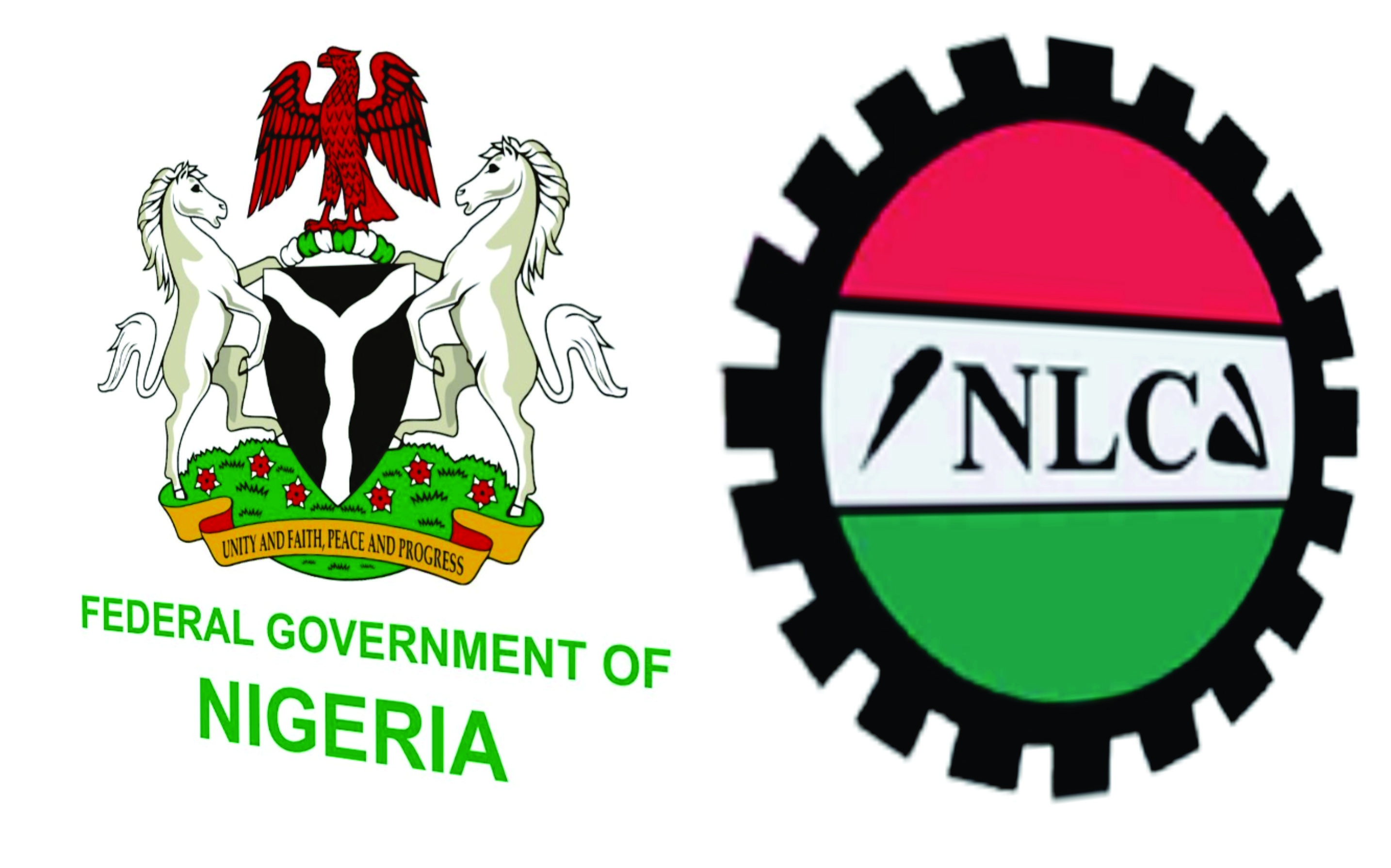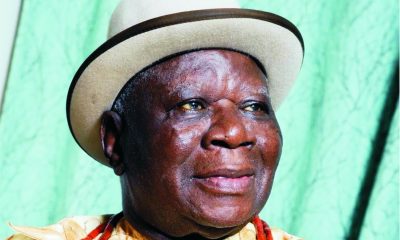Editorial
Trans-Kalabari Road Kidnap: Not Path To Go

The recent abduction of Lubrik Construction Company’s expatriate staff working on Trans-Kalabari Road by unknown miscreants is deplorable and profoundly distasteful. According to reports, three policemen assigned to the employees were viciously exterminated. The sad incident, said to have occurred on Thursday, September 9, along Sama Road, in Asari-Toru Local Government Area of Rivers State, is painfully bewildering. It is absolutely the product of disordered minds to ward off the Kalabari people from benefiting from the generosity of Governor Nyesom Wike.
Unfortunately, such an action could be considered at a moment when the governor is trying harder to ensure that progress takes place in every nook and cranny of the state. Several projects are underway in communities across the state with little or no abduction claims. Why Kalabari land? The Kalabaris are known to be peace-loving, who know how to protect what is theirs. Why did they let this happen to such an extensive project as this, which bears direct impact on their lives?
We denounce the kidnapping and appeal to the police, including all Kalabari leaders, elders and the youth, to go after those answerable for this reprehensible and senseless enterprise. The Kalabaris should remember that they patiently waited for 15 years to witness the actualisation of the road project and must hold on to it pertinaciously. Henceforth, youths from the area should be mobilised to secure all government projects in Kalabari Kingdom, specifically the Trans-Kalabari Road, to preserve it from brigands.
Before the onset of the Wike government, Rivers State had long endured abandoned projects, both at conceptual and advanced stages. The Trans-Kalabari Road had been a neglected project from the time of Dr. Peter Odili when it was awarded for the first time for N9billion. The project was deceased even before it was perfectly visualised.
Former Governor Rotimi Amaechi also signalled a N21billion contract for the same road in December, 2012, and committed to mobilise the contractor to the location by January, 2013. That also didn’t take effect. Yet, this was the same government that used about a whopping N40billion on a white elephant project (the Rivers Monorail) which remains blight for the past six years and deserted even before he left office in May, 2015.
However, in March, 2021, the present government declared a contract for the development of Phase 1 of the project at N13.6billion. On June 24, 2021, Wike eventually flagged off the road with a span of 14 months. The road will link six communities and would be reinforced by an irrevocable standing payment request of N1billion that would be paid to the contractor monthly.
At the initiation of the project, the Chief Executive of the state pleaded with the Kalabaris to give up everything that might imperil the realisation of the initial phase of the venture. The governor spoke at the flag-off of the road at the Degema Waterfront, saying, “Do not allow saboteurs to come and kidnap the contractors and sabotage the road. If I hear that the contractors are being harassed, then it is you”.
Thankfully, the ongoing work has offered an end to the relentless promises that previous governments had made to the people about the execution of the contract. Sadly, the governor’s impassioned appeal was never taken to heart. This untoward incident could prolong the culminating date of the project, thereby, undermining the confidence of the sons and daughters of Kalabari, who look forward to the realisation of the historical undertaking.
While we demand the prompt and outright release of the expatriate, we regard the hard-featured occurrence as a huge challenge to establish reciprocity and tranquillity within all the Kalabari project communities. We strongly advise all adversaries of the Kalabari people and Rivers State to stay clear from all project locations and amenities. Law enforcement and stakeholders of the Kalabari Kingdom should enhance their endeavours to emancipate the expatriate worker.
In 2019, three Lebanese expatriate workers from the Raffoul Nigeria Limited were kidnapped in Andoni. Governor Wike immediately reacted by issuing a 72-hour ultimatum to some traditional rulers and the chairman of Andoni Local Government Council at the time to ensure the release of the engineers working on the Andoni Unity Road or be stripped. The threat paid off, as attempts were stepped up, and the men regained their freedom. We call on the governor to apply a corresponding measure in the Trans-Kalabari Road abduction saga.
Chairmen of the three local government councils of Asari-Toru, Akuku-Toru and Degema have to work collectively to bring off the freedom of the abducted worker and not stick around, expecting the governor to prompt them to act. They need to take steps to protect contractors and workers labouring on projects in their communities. As chief executives and security officers of their respective councils, they must make certain that contractors are not seized under their watch.
Contractors and workers at construction sites must rely less on the government to assure their security. They need to discover ways to secure themselves against delinquents and portentous gangsters. The first step is to broach a security scheme that will provide a policy for an emergency and ensure that all their workers realise how to react and whom to call. Installing surveillance cameras can help monitor the site as a whole and protect lives and equipment.
Wike has always prognosticated a proclivity to move further projects to Kalabariland. But, the activities of kidnappers in the area can dissuade him. The Kalabari people should see themselves too sophisticated to tolerate brigandage in their midst. Hence, they must close ranks to bring an end to the actions of miscreants who aim to see that the development of the area is nixed. Given that the criminals did not emerge from the sky, they have to be detected.
Editorial
Solid Minerals, Cesspit Of Corruption

The recent revelations by former Labour leader and current Chair of the Senate Committee on Interior, Senator Adams Oshiomhole, have exposed a deeply troubling reality in Nigeria’s solid minerals sector. His disclosure that former military generals and foreign operators have systematically seized control of the country’s mineral deposits illuminates the extent of institutional decay and regulatory capture plaguing this vital economic sector.
Minister of Solid Minerals, Dele Alake’s confirmation of these allegations strengthens Oshiomhole’s claims. The minister’s clear identification of “powerful Nigerians” as the masterminds behind illegal mining operations, along with their alleged ties to terrorist financing networks, paints a troubling picture of the complex web of corruption that is undermining national security.
The audacious manner in which these mining syndicates operate reflects their deeply entrenched position within Nigeria’s power structure. Their apparent immunity from prosecution or oversight demonstrates how thoroughly they have infiltrated key institutions, enabling them to continue their exploitative activities without fear of consequences. This systemic failure has persisted across multiple administrations, highlighting the challenge of confronting these well-connected networks.
Former President Muhammadu Buhari’s tepid response to detailed intelligence briefings about the crisis represented a significant failure of leadership. The current administration under President Bola Tinubu appears to be following a similar pattern of inaction, raising serious questions about the political will to address the endemic corruption. This continued paralysis suggests either inability or unwillingness to challenge powerful vested interests.
The grim contrast between enforcement approaches in different regions of Nigeria reveals troubling inconsistencies in governance. While unauthorised petroleum refineries in the Niger Delta face swift and severe military action, illegal mining operations in the North continue largely unimpeded. This disparity in enforcement not only undermines the rule of law but also fuels regional tensions and perceptions of discriminatory treatment.
Selective enforcement practices by the government have created a dangerous precedent. Small-scale refiners in the South face immediate persecution, while large-scale illegal mining operations in the North proceed with apparent impunity. The uneven application of law enforcement has exacerbated security challenges and deepened existing regional divisions.
Shamefully, the deafening silence from authorities regarding widespread corruption in the mining sector strongly suggests high-level complicity. The “conspiracy of silence” has created an atmosphere of resignation among citizens, who witness the systematic looting of their national resources by a privileged few operating outside the bounds of law and accountability.
Further compounding this crisis is the psychological impact on the Nigerian populace. The visible impunity enjoyed by these mining cartels has fostered a sense of helplessness among ordinary citizens, who increasingly view government institutions as serving the interests of a corrupt elite rather than the general public.
Immediate and decisive actions are required to dismantle these criminal networks and restore integrity to the mining sector. Superficial reforms or symbolic gestures will prove insufficient; what’s required is a comprehensive strategy to investigate, prosecute, and punish all parties involved in illegal mining activities, regardless of their status or connections.
No one can imagine the security implications of allowing illegal mining to continue unchecked. The illicit funds generated from these operations provide essential financing for criminal organisations and extremist groups, creating a direct link between mineral theft and national security challenges. Addressing illegal mining therefore becomes critical for both economic and security reasons.
Reform of the extractive sector must extend beyond enforcement to include comprehensive regulatory overhaul. New frameworks must be established to ensure all mining operations adhere to strict environmental standards and contribute appropriately to national development. This includes implementing transparent permitting processes and ensuring proper revenue collection and distribution.
Transforming Nigeria’s mining sector represents a vital test of governance and national resolve. Success requires not only technical solutions but also the political courage to confront entrenched interests and implement lasting reforms. The future prosperity of Nigeria depends remarkably on whether its leaders can summon the will to protect and properly manage its vast mineral resources for the benefit of all citizens.
Editorial
Checking Terrorism Spread In The South

The intensified Nigerian Military campaigns against terrorists and bandits in the North have started to produce promising results, signalling a cogent turning point in the nation’s battle against insecurity. For years, these despicable elements have inflicted intolerable levels of hardships on innocent civilians, disrupting lives, livelihoods, and communities with unrestrained violence.
However, the military incursion, characterised by strategic raids, airstrikes, and well-coordinated operations, has considerably constrained their activities, leaving them on the defensive. The once-emboldened insurgents and bandits, who operated with impunity and plunged the North into chaos, are now feeling the heat gravely and are unable to prolong their reign of terror.
The aggressive push by the military is a welcome development, as it restores hope to the millions of Nigerians who have long yearned for peace and stability in the region. The exacerbating strikes disrupt not just the movement and operations of the criminals but also their supply chains, logistics, and communication networks, weakening their ability to regroup and reorganise.
The triumphs are a proof of the resolve of the Nigerian government and the armed forces to address insecurity directly, boosting the confidence of citizens in their efforts. However, maintaining this momentum is critical. Continued investment in intelligence, technology, and collaboration with local communities will not only solidify the progress made but also guarantee the ultimate eradication of these felons.
Nonetheless, the growing influx of battle-weary outlaws into the South-West region is becoming a cause for concern, as it raises questions about the security and stability of the area. This move by the culprits to establish a base for their illegal activities is seen as a calculated strategy, highlighting the changing tactics of terror groups and banditry networks.
Reports of security operatives apprehending suspected members of these groups during training sessions in Osun State indicate the seriousness of the situation. Such incidents not only suggest a possible increase in violence but also highlight the growing vulnerabilities within the South-West, a region that was once considered relatively shielded from the insecurity affecting other parts of the country.
The arrests in Osun State are just one example of the broader threat facing the area. With terror groups reportedly regrouping in large numbers, the implications for governance, economic development, and societal peace are profound. The porous nature of security infrastructure, the vast terrain, and the availability of soft targets make the region an enticing option for these outlaws to establish a base.
If left unchecked, the attempts of these felons to infiltrate the South-West could potentially lead to a spillover of terror and devastation experienced elsewhere. Therefore, it is vital to bolster intelligence-gathering mechanisms, enhance community-based surveillance, and ensure the rapid deployment of security forces to thwart the machinations of these bad actors before their activities escalate into a full-blown crisis. Proactive measures are needed now more than ever to protect the region from descending into a state of chaos.
Nigeria’s Department of State Services (DSS) has lately increased its efforts to ensure national security by conducting strategic operations in parts of Ijesaland, leading to the arrest of numerous individuals allegedly involved in terrorist activities. Acting on credible intelligence, the DSS carried out preemptive raids across several locations within the state, targeting individuals whose presence and actions posed potential threats to safety.
Among those apprehended were illegal immigrants who failed to present valid residential permits or provide satisfactory explanations for their presence and mission in both the state and the country at large. The operation calls attention to the agency’s commitment to safeguarding national integrity and underscores the extensive issue of porous borders, which have facilitated the convergence of undocumented aliens.
Given these developments, all the governors in the South should act in unison and strategise against the security threats posed by the terrorists to avoid being caught off guard. The South-South and South-East geopolitical zones should establish regional security outfits like their South-West counterpart. This requires cooperation with all other relevant stakeholders, such as socio-cultural groups and non-governmental organisations, that are willing to help in warding off criminals from the Southern part of the country.
On April 11, 2021, South-East governors announced the formation of a new regional security group called ‘Ebube Agu’ after a meeting at the Imo State Government House. This decision came in response to violent attacks on police and correctional facilities. Unfortunately, the initiative was not followed through and has since faded away. The lack of response from the South-South region is depressing. It is important that governors prioritise the security of their respective zones.
As the military ramps up its campaign against terrorists and bandits in the North, the temptation for survivors to flee to relatively peaceful locations, particularly in the South, is real. However, it is the duty of leadership to clearly communicate that they will not find refuge in the forests of states within the three geo-political zones in the South.
We hope that the apprehension of suspected trainee terrorists in Osun State will serve as a stark warning of the dangers that lie ahead. It underlines the need for all Southern states to strengthen their vigilance and preparedness. If rogue elements fleeing from the North wrongly assume that they can regroup and find solace in the South, their plans must be met with strategic defence mechanisms and a united regional response.
Editorial
New Federal Varsity In Ogoni

President Bola Ahmed Tinubu has made history by signing into law a bill that establishes the Federal Univer-
sity of Environment and Technology in Ogoni, Rivers State. This significant occasion marks a bold step forward not only for the Ogoni people but also for the Niger Delta region and Nigeria as a whole. It signifies a commitment to education, environmental sustainability, and technological advancement.
For the Ogonis, who have long been impacted by environmental challenges, the university represents a beacon of hope. It is more than just bricks and mortar; it is a symbol of empowerment and a pathway to a brighter future. This development is akin to a seed, planted with the promise of a flourishing harvest of skilled professionals.
The university’s emphasis on environmental technology is extremely important, especially given Nigeria’s climate crisis. Education plays a crucial role in developing sustainable solutions. The institution will provide students with the necessary skills and knowledge to address the environmental challenges affecting the Niger Delta region and beyond. This will have a momentous impact.
Signing the bill, the President praised the Ogoni people’s resilience and unity. He stressed that the institution would mark a “significant milestone in our national journey towards environment justice, education and sustainable development”. Tinubu said the university is a reaffirmation of his administration’s “unwavering commitment to the people of Ogoni, the Niger Delta and the nation as a whole. For decades, the Ogoni people have been at the forefront of fight for environmental restoration and sustainable development, shaping both national and global conversation of these critical issues.
“By signing this bill into law, we are taking a decisive step towards addressing historical grievances and creating new opportunities for learning, growth and prosperity. The university will serve as a centre of excellence, equipping young Nigerians with the knowledge and skill to tackle present environmental challenges, drive clean energy solutions and contribute to our national sustainable economic development.”
We commend President Tinubu for his visionary decision to establish the much-needed institution aimed at fostering development and progress. This initiative is a testament to his commitment to addressing critical social and economic knots and creating opportunities that will benefit the people. The President has laid a solid foundation for sustainable growth while demonstrating a genuine desire to empower and advance the nation’s collective interests.
In addition to his commendable action, we applaud Tinubu for initiating peace talks to bring stability and reconciliation to the troubled area. The decision to engage in constructive dialogue demonstrates a deep understanding of the relevance of inclusive governance and the role of peace in fostering meaningful development. For decades, Ogoni has endured turmoil and neglect, impeding its potential and the return of oil exploration activities.
By opening the door to peaceful negotiations, the President has made a bold and necessary move towards healing fractured relationships and fostering trust among stakeholders. This initiative holds the promise of ensuring that the voices and needs of the Ogonis are heard and respected. We urge all parties involved to seize this golden opportunity for lasting peace and progress. It is only through unity and mutual respect that the full potential of Ogoni, and by extension the nation, can be realised.
As steps are taken to acknowledge and remediate the damage caused by years of oil exploration and production, the Ogonis must reciprocate Mr. President’s gesture by fostering a climate of equanimity and stability. This will ultimately pave the way for the resumption of oil exploration and production. This is not a call to forget the past, but a pragmatic recognition that meaningful change and sustainable development require a collaborative approach.
The Federal Government has a responsibility to ensure that all academic disciplines offered by the new university are fully accredited to maintain the integrity and quality of the school. Without proper accreditation, the institution risks producing graduates who are ill-equipped to compete in the global workforce or contribute substantially to national development. Accreditation serves as a benchmark that ensures programmes meet academic standards and adhere to best practices across various fields of study.
Staff recruitment should be conducted carefully, as the individuals brought into a team can greatly influence an organisation’s performance, culture, and long-term success. The primary focus of recruitment efforts at the university should be on attracting the best candidates who possess the necessary skills, qualifications, experience, and values. Merit should be the guiding principle in decision-making throughout the hiring process, rather than favouritism or personal bias.
For a nation to thrive in the 21st century, a strong higher education system is not only desirable, but essential. Universities serve as the catalysts for innovation, the breeding grounds for future leaders, and the foundations of a knowledge-based economy. The Federal Government must acknowledge this vital role and take intentional actions to properly fund the university in Ogoni and develop infrastructure to ensure it meets international standards. Neglecting this responsibility would put its future prosperity and global competitiveness at risk.
This institution must not suffer the same fate as other federally-owned universities that have been left to decay. That will be a disservice to its purpose and potential. Many government-owned universities in the country have struggled with dilapidated infrastructure, underfunding, insufficient staffing, and interruptions caused by industrial actions due to unpaid wages or poor working conditions. These challenges have led to declining standards in education, putting both students and staff at a disadvantage. The Ogoni University must not be another victim of this worrying trend.
-
Niger Delta4 days ago
Delta Approves N275bn For 76 Projects Execution
-
Features4 days ago
A Farewell To Arms In Ogoni
-

 Business4 days ago
Business4 days agoNigeria’s Non-Oil Exports Growth Rises 20.7% To $5.45bn In 2024
-
Politics4 days ago
2027: SDP Advocates Principles-Based Alliances For Good Governance
-

 News4 days ago
News4 days agoFubara Expresses Grief, Commiserates With Family Over Death Of Pa Edwin Clark
-
Business4 days ago
NCDMB, Starzs Gas Upbeat On Industrialisation …Unveil CNG Project In Delta
-

 Niger Delta4 days ago
Niger Delta4 days agoUNICAL VC Institutes Scholarship To Reward Academic Excellence
-
Sports4 days ago
Aruna Eyes Title Defence, W’Cup At African Cup

